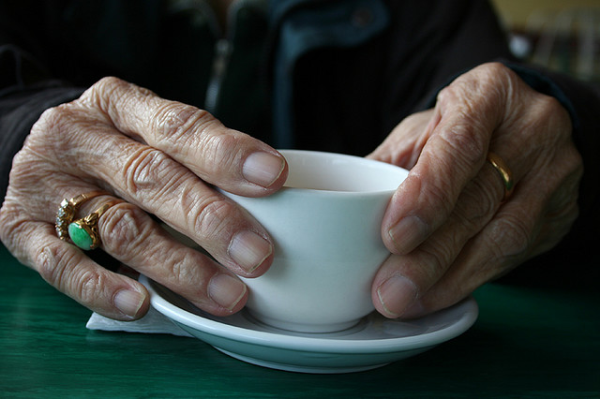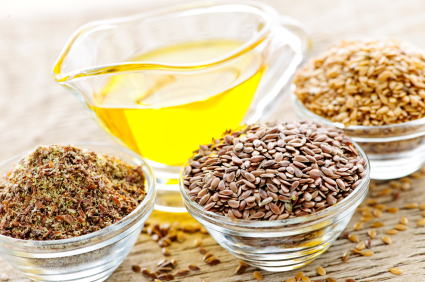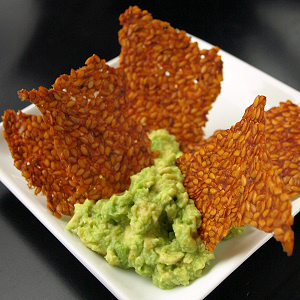
The Health Benefits Of Flaxseeds

The growing of, and consumption of, flaxseed (linseeds) dates back to Babylonian times. Hippocrates wrote about his use of flaxseed for healing abdominal pain. In the 18th Century it was illegal to not eat flaxseed. The early colonists planted flax when they came to America. Though not perfectly accepted in all nutrition circles (i.e., Paleo Diet community) the health benefits of flaxseeds are numerous and worthy of recognition.
As a child I recall my grandmother and mother boiling pots of flax to concoct a gelatenous drinkable tea. I remember them saying it was good for their digestion. My mother now in her 60's takes flax for her breast cancer as a preventive measure. They may not have understand the nutritional science behind these smooth shiny seeds, but they certainly have enjoyed its benefits.
In its raw state, flaxseed does have a known toxic substance called glucoside. But the amount of this substance in the seed is believed to be safe enough to consume at about 2 tablespoons per day. Furthermore, heat destroys the toxic glucoside making flaxseed safe to use in cooking and heated form.
 The native Mediterranean plant produces a shiny hard seed that comes in colors ranging from deep amber to reddish brown. These seeds are high in alpha-linolenic acid (ALA) and lignins. ALA is an Omega-3 fatty acid. Omega-3 fatty acid has so many health benefits that an entire book can be written about it. It is anti-inflammatory, food for the brain, lowers cholesterol and is good for the heart.
The native Mediterranean plant produces a shiny hard seed that comes in colors ranging from deep amber to reddish brown. These seeds are high in alpha-linolenic acid (ALA) and lignins. ALA is an Omega-3 fatty acid. Omega-3 fatty acid has so many health benefits that an entire book can be written about it. It is anti-inflammatory, food for the brain, lowers cholesterol and is good for the heart.
The lignans in flaxseeds protect the body against hormone-sensitive and other cancers. The lignans tend to bind to excess hormone and carry it out of the body. Lignans may also inhibit the growth of prostate cancer cells. One study suggests that the higher the ALA present in breast tissue, the lower the chance that the cancer would spread into the lymphatic system.
Flaxseeds are also a good source of Folate, Vitamin B6 and magnesium. These nutrients are vital for a healthy heart. Their high insoluble fiber content makes them good for the digestive system and encourage a healthy gut micro-flora.
Flaxseed can be purchased whole, ground or in oil form. The seeds in their whole form are very sturdy and will keep long without losing much of their nutrient content. Once ground, flaxseed becomes quickly oxidized and should be used as soon as possible. I prefer to purchase a whole seed and grind in a dedicated coffee grinder just before use. If consumed whole, most of the flaxseeds nutrient content will remain in the seed and pass through the body whole. This may help with constipation but does little for cancer prevention and heart health. In either form you should keep them in a tight container stored in the refrigerator to best preserve them.
Once ground flaxseed can be used to top salads or fruit, or used in a tea like my mother and grandmother did. However, they were boiling the seed whole and I'm not sure how much nutrient they derived from this method. Add flaxseed to granola, or make dehydrated crackers like those pictured above.
Flaxseed oil should be purchased cold-pressed, refrigerated and in a dark bottle to prevent oxidation. It's sweet nutty flavor lends itself to using it raw as a dressing for salads and vegetables. It should never be used for cooking. Flaxseed oil can be taken as a supplement as a part of a daily regimen.


